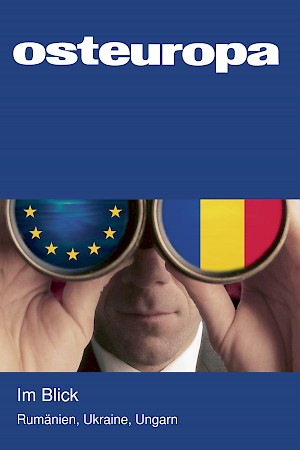Comic Agony
The Grotesque in Late Socialist Literature
Deutsche Fassung
Abstract
The grotesque as a means for representing high social tensions and contradictions and as a tool of aesthetic subversion played an important role in Soviet literature from the start. After the Second World War, the genre flourished throughout the Eastern Bloc. That it remained current throughout the region until to the 1980s is shown by a comparison of three novels from that period, one from Russia, one from Poland, and one from Lithuania: the phantasmagorical novels by Venedikt Erofeev (Moskva-Petushki), Tadeusz Konwicki (Mała Apokalipsa) and Ričardas Gavelis (Vilniaus Pokeris) draw on gro-tesque traditions with virtuoso. They reveal the late socialist world as an absurd age that carries the seeds of its demise within itself.
(Osteuropa 9/2012, pp. 87–96)



